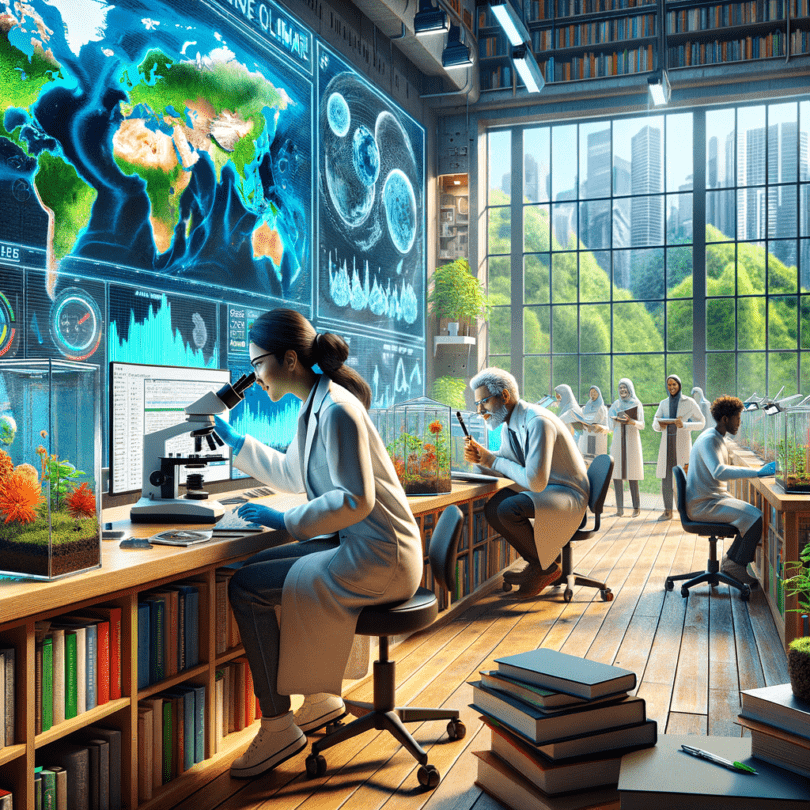In early May, The Guardian highlighted a survey revealing the sentiments of 380 climate scientists. The findings were far from uplifting, with quotes expressing deep distress. “There are times when it’s almost impossible not to feel hopeless and shattered… There’s no escaping it.” Such emotive pieces reflect the anxiety among climatologists, who see their forecasts coming true with unsettling accuracy, while their cautions are largely ignored, as climate scientist James Hansen once described humanity as “damned fools.” Some have even suggested pausing climate research altogether. Climatologists are struggling. The rapid pace of the climate crisis is stunning, and engaging with experts during such times is essential. However, these articles have their issues. They often aim to instill fear but provide only broad ideas of missing “political will” as a diagnosis and offer little more than “listen to the scientists” as a solution. Additionally, the insights and methods of climate social scientists are not highlighted enough in these narratives, which is a considerable oversights.
Climate natural scientists lack training to comprehend why people are not heeding their appeals or the barriers to and openings for action. In contrast, climate social scientists grasp the climate crisis and are skilled in humanity’s efforts to combat climate change.
Over the past two years, I have spoken with over 20 peers from the climate social sciences field about how they are handling the climate crisis in their research, teaching, and daily lives. These discussions were conducted as part of an ongoing project investigating the viewpoints and roles of climate social scientists amid a climate crisis. They could offer a meaningful and inspiring perspective that the world sorely needs. It’s not that climate social scientists are thriving either. Their deep understanding of the climate crisis prevents a cheerful outlook — fear, guilt, gloom, anger, and frustration are widespread. Cristina Yuma Aoki Inoue from Radboud University voiced a common regret: “If I think too much about the future, I get desperate.” Yet none of those interviewed showed signs of giving up or leaving the climate crisis for unspecified others to address. Instead, there’s a deliberate dedication to positivity despite disheartening climate news. University of British Columbia scholar Peter Dauvergne remarked he is “intentionally optimistic.” While some, like British political scientist Matthew Paterson, express “guilt that our community was not louder earlier,” there is a shared belief in the “sense of possibility” that Thomas Hale from Oxford University recognizes. “Hope is a practice,” remarked Harriet Bulkeley from the University of Durham, and this community actively fosters that practice. Indeed, none of the scholars I engaged with view addressing the climate crisis with a fair, effective response as optional. Climate despair is a luxury for those not experiencing climate disasters or who can survive them.
Thus, there is a shared sense of duty among climate social scientists to strive for long-term changes towards sustainability and justice. This fight is “all we are promised,” as Kemi Fuentes-George from Middlebury College pointed out. The work holds intrinsic value, regardless of whether a solution to climate change is achieved. As Peter Newell from the University of Sussex notes, “There’s empowerment in the process of working on this regardless of the outcome. We don’t know if our efforts are enough, but we know that if we don’t try at all, nothing will change.” The climate social science community picks up where typical “climate scientists are despairing” articles conclude, by clarifying the vague concept of political will and seeking to outline necessary actions in response to the climate crisis, social scientists contribute important nuance. No one expects this to be easy. Indeed, as climate governance scholar Aarti Gupta expressed, “I’m worried about what the climate crisis will do to already contested politics in a world with so much injustice and inequality. There is opportunity [if] we are truly all in this together, but the status quo will resist fiercely.”
Those I conversed with are unanimously dedicated to identifying possibilities for change in their research and teaching. Instead of simply analyzing failures to act, scholars like Kathryn Harrison at UBC emphasize “teaching the reality of obstacles while teasing out what might be different.”
Everyone I spoke with is dedicated to what Chukwumerije Okereke from Bristol University calls balancing “both hope and anxiety” in their work. But the key, as Dauvergne suggests, is focusing on “multiple future possibilities that could be improved.” Climate social scientists are not only explaining the crisis but also identifying where there is momentum for a fair response to climate change and where further effort is needed to, as Indian climate policy expert Navroz Dubash puts it, “build the society we want to see.” Climate social scientists, like everyone, live in a world dominated by fossil fuels. They research potential changes, but often feel conflicted about personal choices.
The experts I spoke with ponder their personal actions carefully. Importantly, they do so with a commitment to understanding and contributing to overarching change, breaking free from the dependence on fossil fuels that saturate our societies. Personal actions are linked to structural change in their minds. Laura Tozer from the University of Toronto mentioned how crucial it was for her to “focus on decisions I can make that others can as well. Trying to eliminate fossil fuels from one’s life offers great insights into the structural changes that are essential.” Furthermore, this group highlights how individual actions are intertwined with larger networks and forces. In this context, Brazilian scholar Veronica Goncalves emphasized the frequent refrain — the significance of collective experience and organization; empowering communities and individuals in reaction to climate change.
These connections require more than fear or despondency to flourish. As University of Toronto’s Kate Neville emphasized, “Seeking joy, connection, and community is a vital part of collective action – the climate-stable, ecologically-vibrant future needs room to be envisioned as joyful, not apocalyptic, even though we are aware of the struggles, sorrow, losses, and upheaval.” While the “climate scientists are despairing” genre of articles is problematic, it captures an undeniable aspect of the climate crisis reality. Humanity is progressing too slowly.

